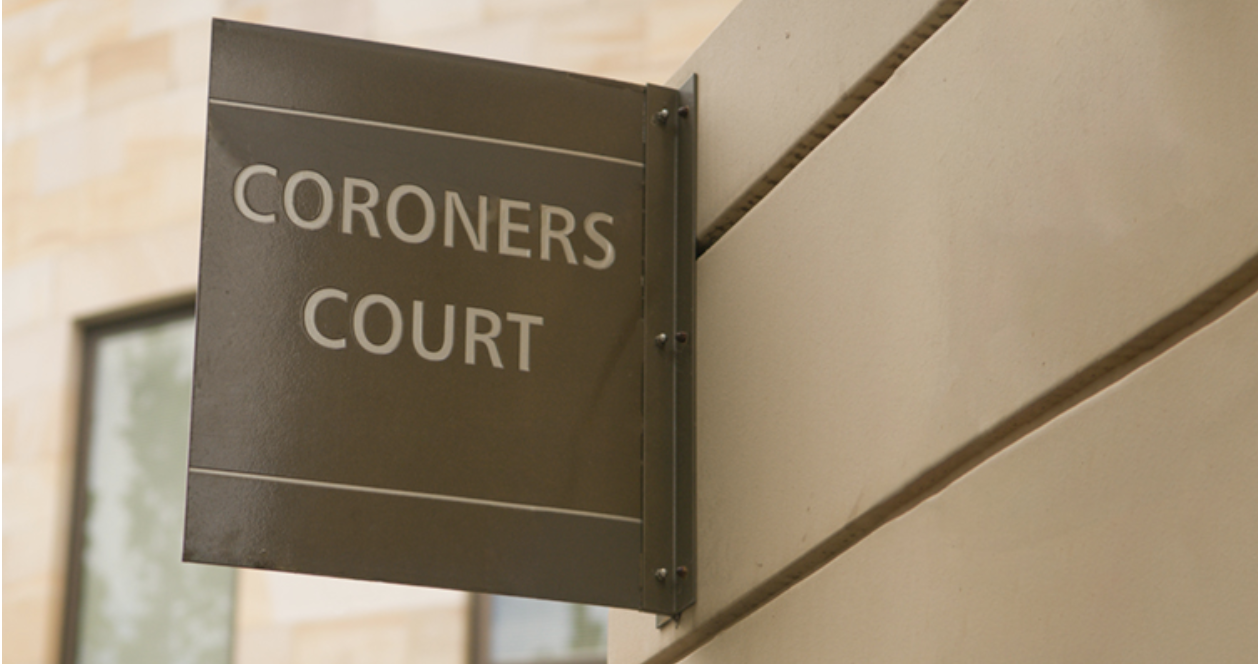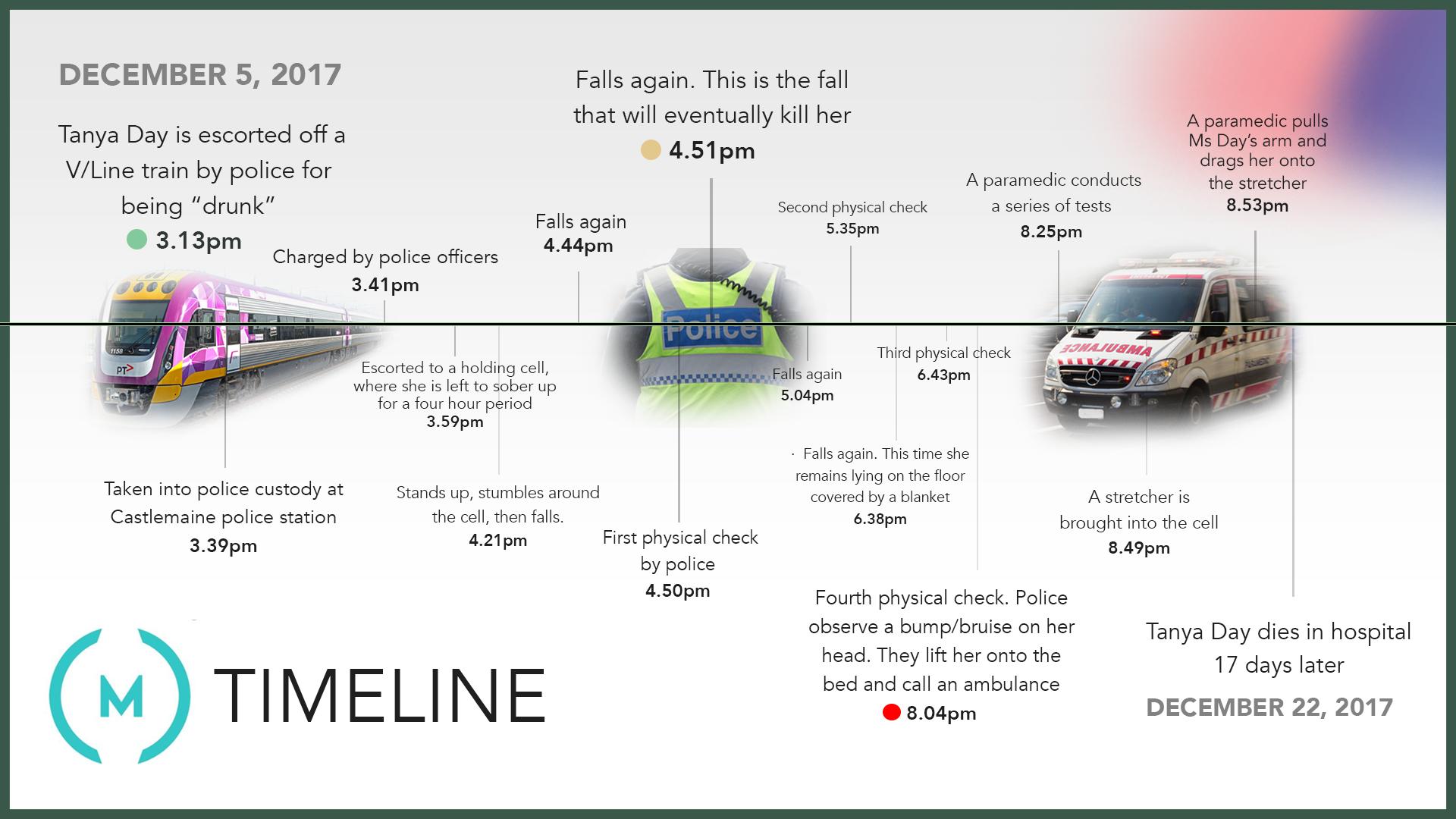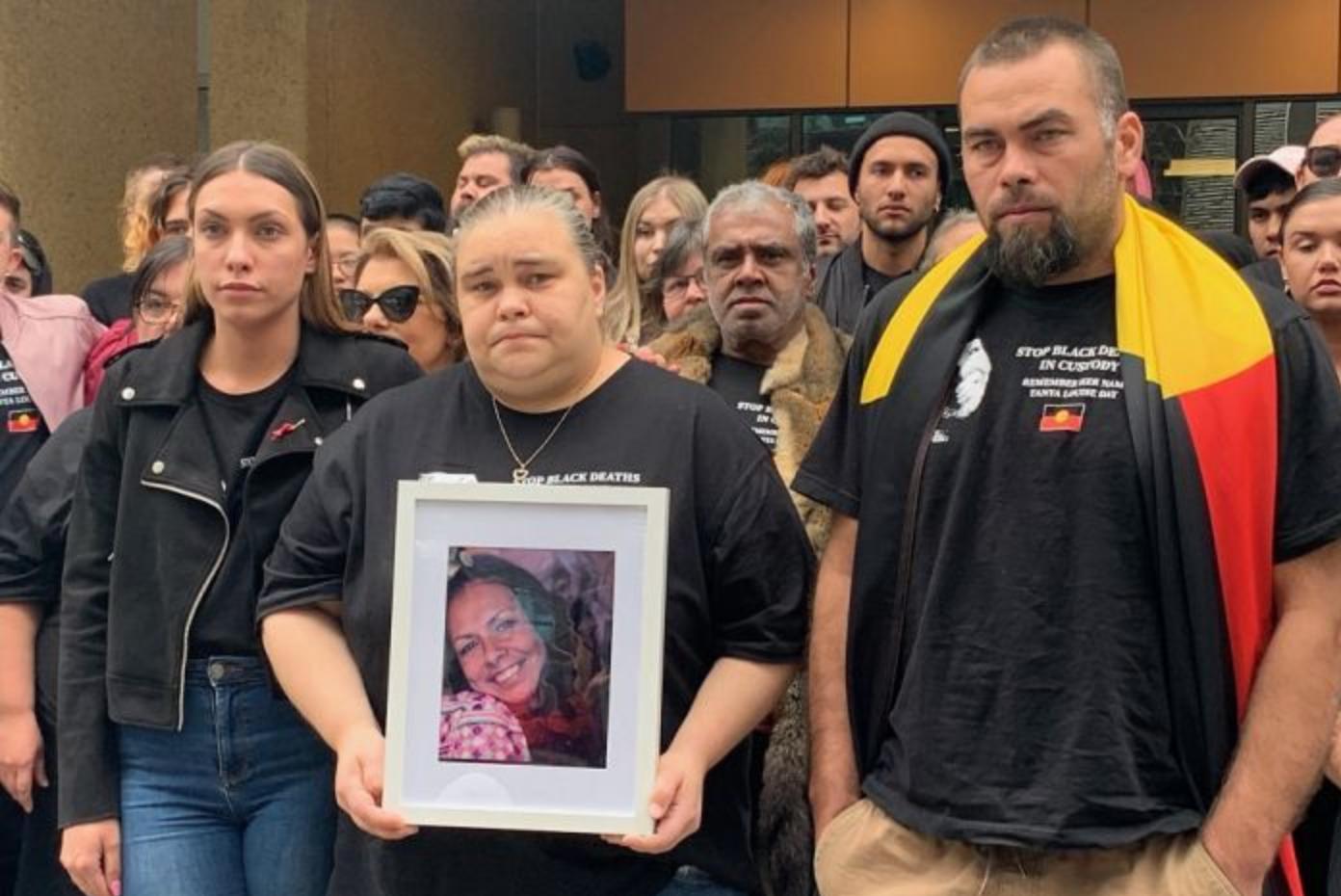Coroner refers "clearly preventable" death of Tanya Day to prosecutors
🔗 [SYSTEM UPDATE] Link found. Timestamp incremented on 2025-11-26 13:55:13.The DPP will decide whether criminal charges will be laid over the preventable death of Aboriginal woman Tanya Day.

BY LEE ROBINSON
A coroner has referred the death in custody of Aboriginal woman Tanya Day to the department of public prosecutions to investigate whether criminal negligence occurred.
Due to social distancing regulations, Coroner Caitlin English delivered her findings via a livestream this morning, after considering the series of events which led to the Yorta Yorta woman’s death in December 2017.
The 55-year-old fell and sustained a head injury in Castlemaine police station after she was arrested for allegedly being drunk on a Melbourne-bound train.
She died 17 days later.
“I believe an indictable offence may have been committed in connection to Ms Day’s death,” Ms English said.
In considering Ms Day’s head injury, medical evidence suggested she had just a 20% chance of survival, and even then, with severe disabilities.

On the issue of preventing Ms Day’s death, however, Ms English said her death was not limited to the medical care she received after hitting her head, pointing out that her death was “clearly preventable had she not been taken into custody”.
Ms English also recommended any custody risk assessment carried out by police, should also include a falls risk assessment.
V/Line train conductor Shaun Irvine was found to be “influenced by unconscious bias” when he made a “snap decision” to request police attendance for Ms Day, who he claimed to be “unruly”. Day was asleep at the time.
"I find the decision to define her as unruly and to call for police rather than pursue other options has been influenced by her Aboriginality," she said.
However, Ms English found systemic racism was not a factor in the decision by police to arrest Ms Day at Castlemaine train station. She said once police arrived they decided they could not leave Ms Day for her own safety, even though arresting someone for public drunkenness is supposed to be a last resort.

Ms English said the decision to put Ms Day into custody showed an “absence of problem solving” and said there was “minimal compliance with the medical checklist”, which should have resulted in Ms Day being sent to hospital, based on her apparent condition at the time.
Despite police officers' claims they conducted regular verbal and physical checks on Ms Day while she was in a cell, the coroner found these to be inadequate and “demonstrated a cultural complacency toward people who were drunk".

Ms Day’s family had called for a criminal investigation into the police responsible for her care, a formal apology from them and V/Line.
Her death prompted the Victorian government to move to decriminalise public drunkenness in August 2019.





